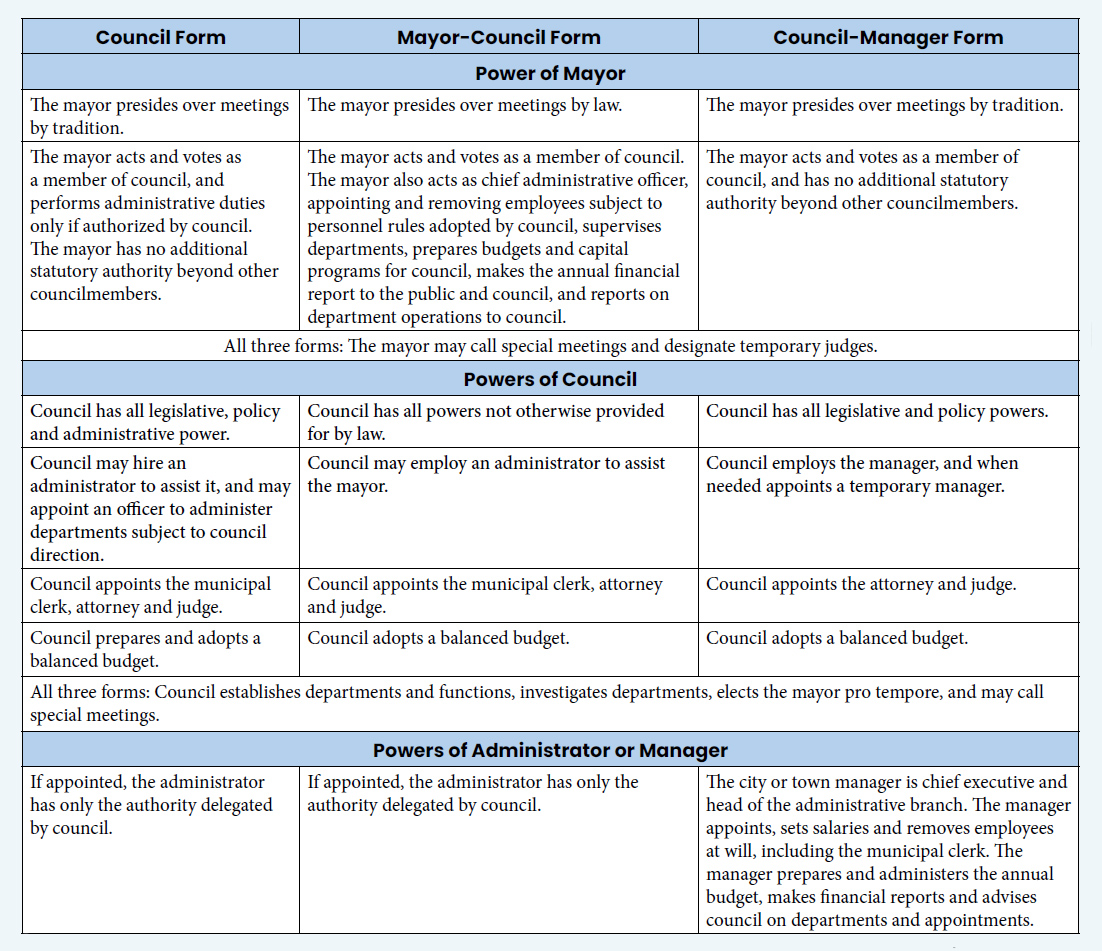South Carolina state law, under SC Code Section 5-5-10, authorizes three forms of municipal government, and allows municipalities to choose one of them by referendum as their governance model.
The three forms all have some elements in common, especially the fact that all powers granted by the state to municipalities rest with the full city or town council, except as otherwise provided for specifically by law. The council is considered a legislative body and is the only entity within the municipality with the power to enact ordinances, adopt resolutions and establish policies. The council cannot delegate its legislative power.
The three forms have several differences, especially for administrative functions. A full summary of the differences as defined by South Carolina law can be found in the Forms and Powers of Municipal Government handbook, and the online, on-demand Municipal Elected Officials Institute of Government course “Forms of Municipal Government.”
Here’s an overview of some of the key differences:

